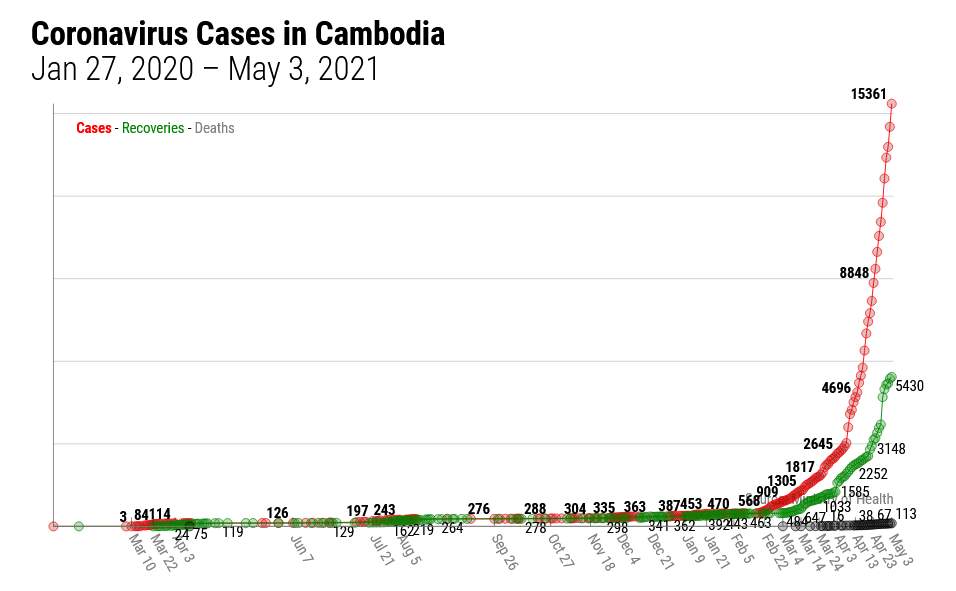
In this graph from the Voice of Democracy website, you can see the terrible effect of two people, infected with Covid-19, who ran around infecting others.
Charlie Dittmeier's Home Page

In this graph from the Voice of Democracy website, you can see the terrible effect of two people, infected with Covid-19, who ran around infecting others.

During the lockdown, we are to stay at home except for obtaining food and medical care. I went out after ten days to get more food because I am sure the lockdown will be extended and we may even become a Red Zone and will not be able to go out for food. Click here for photos of the food trip.
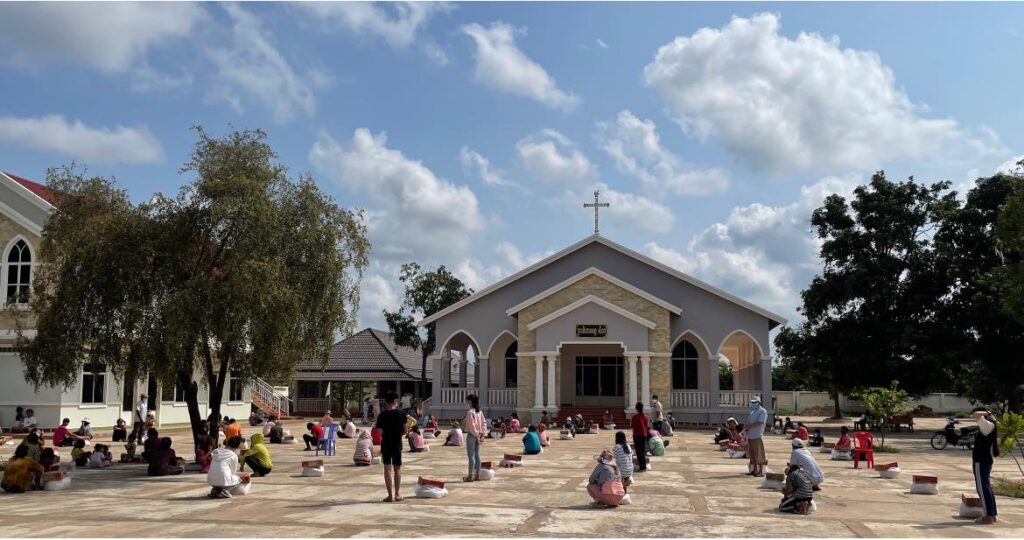
Food has become a major issue in Cambodia with many people without adequate access to food on a daily basis. Bishop Olivier’s food program has been helping out in certain areas. Above is a food distribution to family representatives at a parish in Kandal Province.

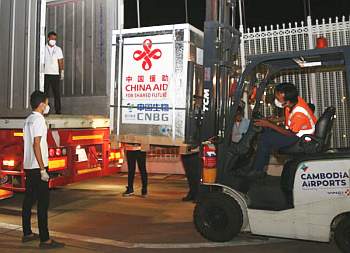
Last night China delivered another 400,000 doses of one of its vaccines. That makes a total of 1.7 million doses that Cambodia has now received from China and quite a few million more are scheduled between now and August.
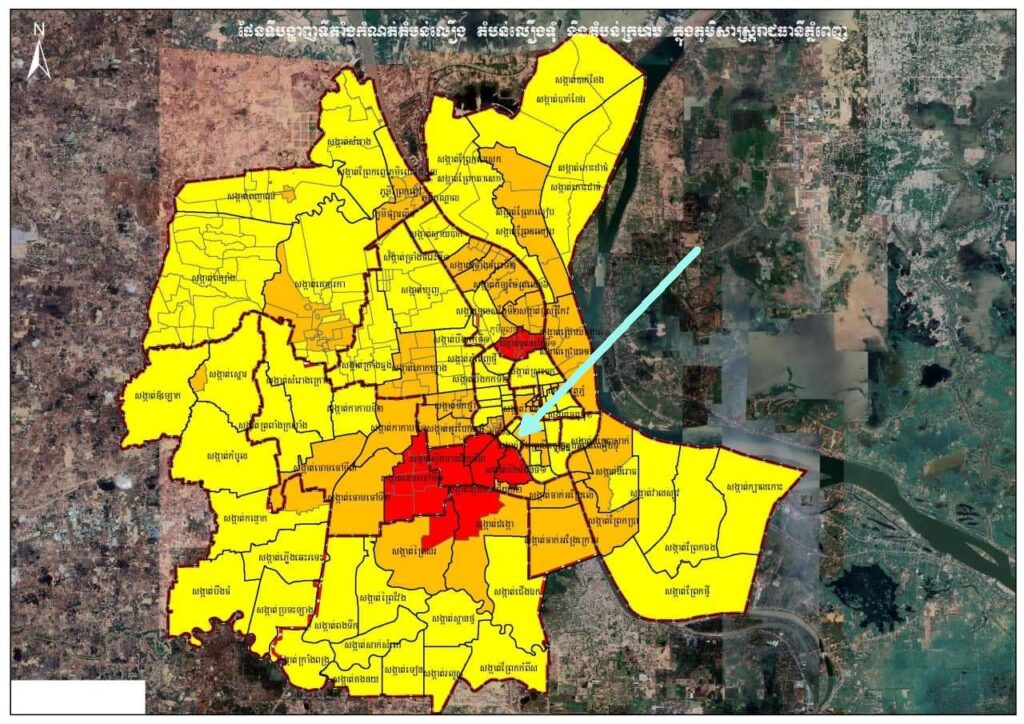
On April 14th, the Cambodia government declared a two-week lockdown for the cities of Phnom Penh and Takhmau, 10 miles to the south. Then certain areas of Phnom Penh with greater concentrations of Covid-19 infections were designated as Red Zones and movement and activity was severely restricted.
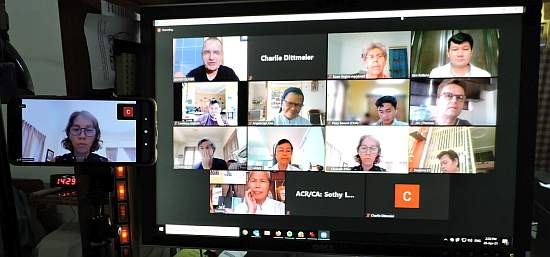
Phnom Penh’s Bishop Olivier called an online meeting of Catholic NGOs and agencies to explain the present situation, to present the diocese’s response plan, and to encourage the church groups to do more.
A very large part of Cambodia’s workforce is in the informal economy (e.g., scrap dealers, tuk-tuk drivers, construction workers, etc.) and in a lockdown they have no income while prices are getting higher and higher. The Catholic Church’s response has targeted these people and their families who are suffering from food shortages.
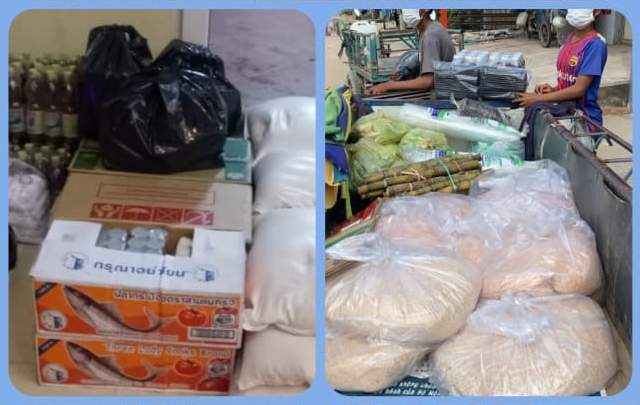
The Covid-19 situation in Cambodia is getting worse. The numbers of infections are increasing in Phnom Penh even though we are in Day 12 of a two-week lockdown. And the government response has not been the best. They don’t seem to know what to do and don’t seem to be able to learn from the experience of others or even their own experience. Click on these articles from the Khmer Times to get a sense of what’s happening:
• Government authorities beat food delivery drivers
• Life is difficult in the strictest lockdown areas
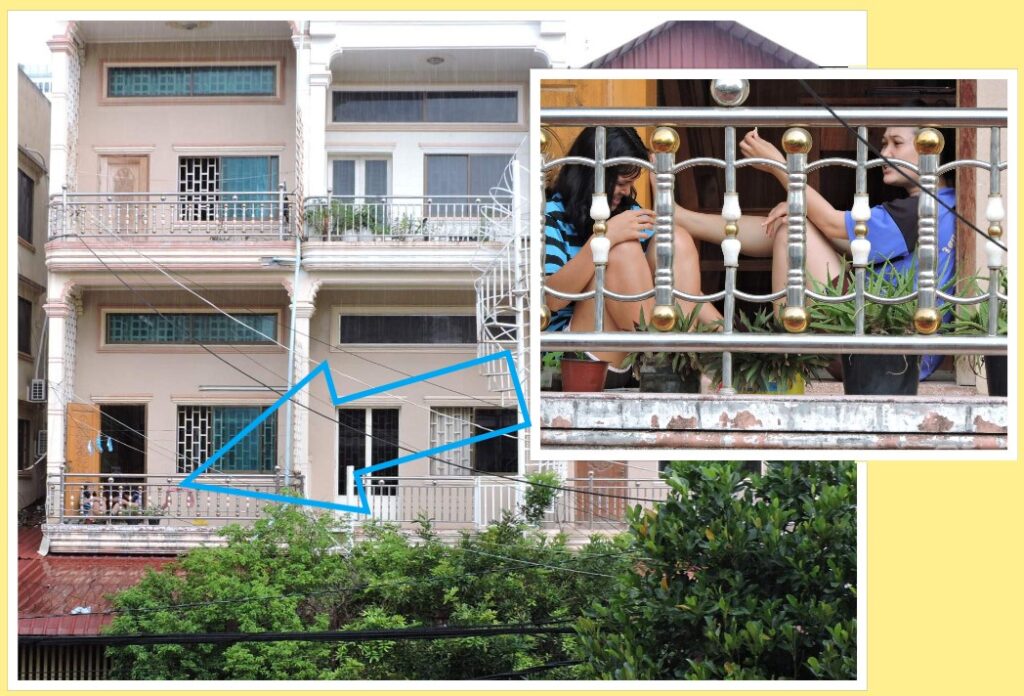
It’s Day 11 of a two-week lockdown, you can’t go out of the apartment, and it’s raining…. What do you do? This young couple enjoyed just sitting on their balcony on this Sunday afternoon.
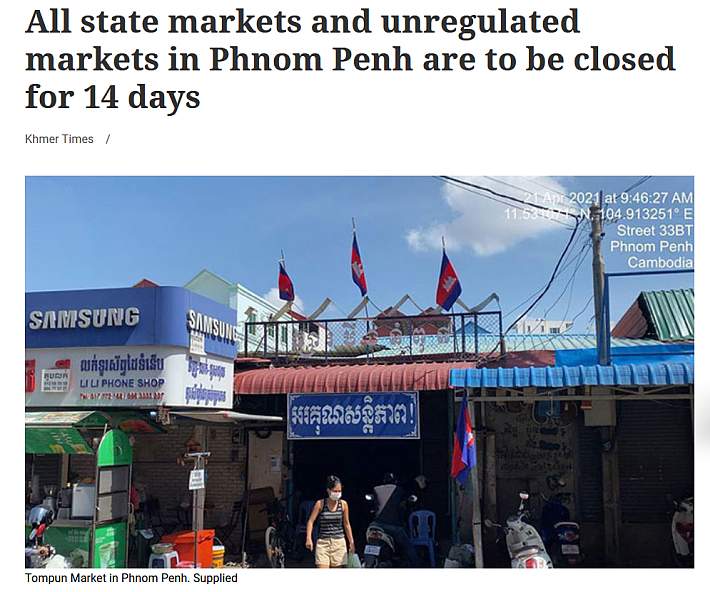
The Cambodian government is having a difficult time dealing with the coronavirus. Last night, without any warning, they closed all the markets where the ordinary people buy their food. Families typically go to the market every day to get fresh meat, fish, fruit, and vegetables. It’s just part of the culture and they don’t have refrigerators. It’s going to be difficult for them.